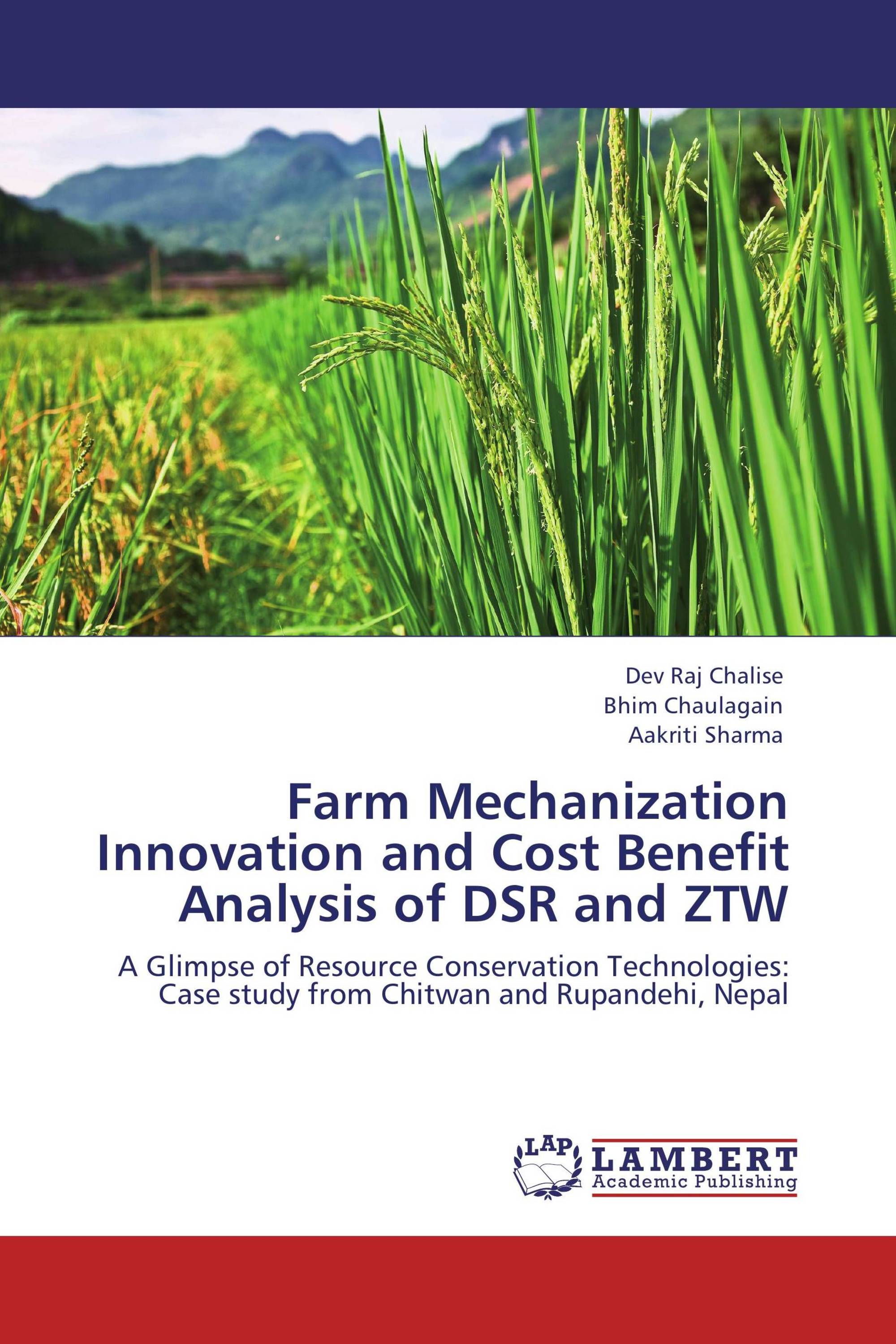Farm Mechanization Innovation and Cost Benefit Analysis of DSR and ZTW
A Glimpse of Resource Conservation Technologies: Case study from Chitwan and Rupandehi, Nepal
€ 49,00
The concept of reduced or zero tillage systems is not new. Many developed and developing countries also use these systems, which are often found to generate higher yields, reduce production costs and reduce erosion and other forms of land degradation, with corresponding benefits for the natural resource. A whole system of mechanization has been developed in these countries to ensure good crop establishment, proper placement of fertilizer and handling of crop residues for better yield. These equipments are accompanied by a set of recommended crop management and protection for handling weed, disease and pest problems occurring under the new tillage systems. Appropriate agriculture mechanization for commercialization of agriculture is a need to achieve timeliness in field operations, increased productivity, reduce cost of production and to minimize farm labour. So, it has no alternative to reducing the cost of cultivation that ultimately reduces the price of agricultural products through mechanization and commercialization of the agriculture sector.
Book Details: |
|
|
ISBN-13: |
978-3-8484-1689-9 |
|
ISBN-10: |
3848416891 |
|
EAN: |
9783848416899 |
|
Book language: |
English |
|
By (author) : |
Dev Raj Chalise |
|
Number of pages: |
68 |
|
Published on: |
2012-03-02 |
|
Category: |
Agriculture, horticulture, forestry, fishery, nutrition |
